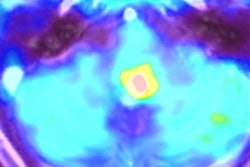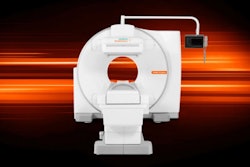Dear Molecular Imaging Insider,
The 2015 annual meeting of the Society of Nuclear Medicine and Molecular Imaging (SNMMI) is now history. Once again, the conference provided a wealth of research to advance the field.
One of the scientific papers presented in Baltimore dealt with the detection of beta-amyloid plaque, which is associated with Alzheimer's disease. Researchers found that PET with the radiotracer florbetaben can detect diffuse beta-amyloid plaque deposits in the brain, which could lead to earlier detection of the disease. Read more about the possibilities in our Insider Exclusive, available to you first as an Insider subscriber.
Other papers from SNMMI 2015 extolled the virtues of FDG-PET and FDG-PET/CT for predicting disease recurrence and survival for patients with head and neck cancer, as well as FDG-PET/CT's ability to forecast disease progression and overall survival for ovarian cancer patients up to several years after treatment.
In addition, clinicians may soon be able to add PET/MRI with F-18 fluorodopa (FDOPA) to their imaging arsenal to evaluate the efficacy of the angiogenesis inhibitor bevacizumab for pediatric brain tumors. Researchers from Washington University in St. Louis found that FDOPA-PET/MRI scans are a feasible way to visualize recurrent brain tumors in pediatric patients and evaluate changes in metabolic tumor volume after one cycle or more of bevacizumab therapy.
From the University of California, Los Angeles comes evidence that an amyloid PET scan acquired within a month of an inconclusive conventional FDG-PET scan provides a clearer diagnosis for patients with an Alzheimer's-like pattern of reduced brain metabolism. It also offered earlier, more effective treatment and a better chance to preserve cognitive function.
The highlight of the SNMMI annual meeting is always the Image of the Year announcement. A PET radiotracer for prostate cancer that can be labeled with different radioisotopes for both diagnostic and therapeutic use won the honor this year. German researchers developed PSMA-617, a prostate-specific membrane antigen (PSMA) inhibitor, to target the enzyme on the surface of prostate cancer cells, even if they have metastasized to other organs. PSMA-617 can be radiolabeled with gallium-68 for diagnostic use and lutetium-177 for therapy.
Be sure to stay in touch with the Molecular Imaging Community on a daily basis, as we continue our postmeeting coverage and bring you news from around the world.



















